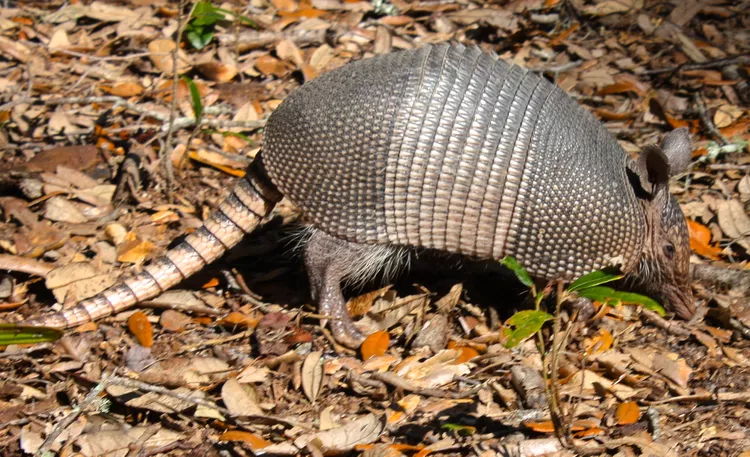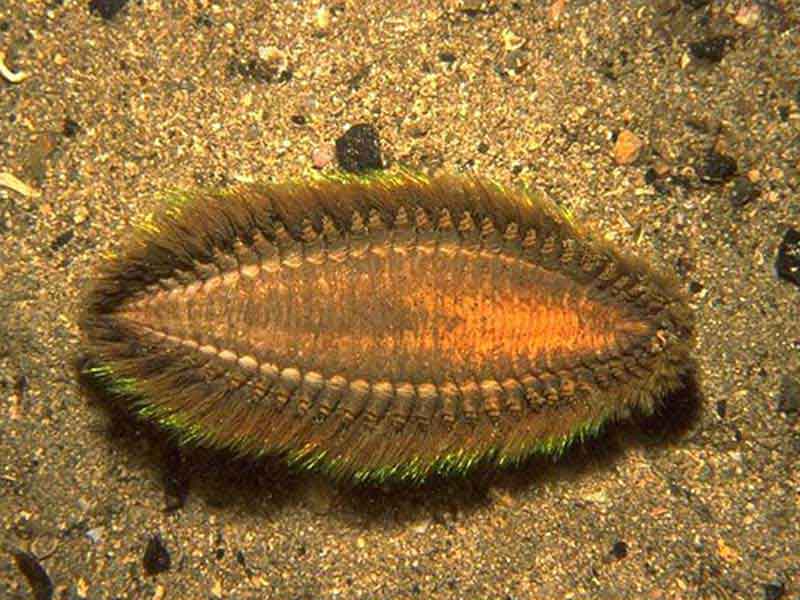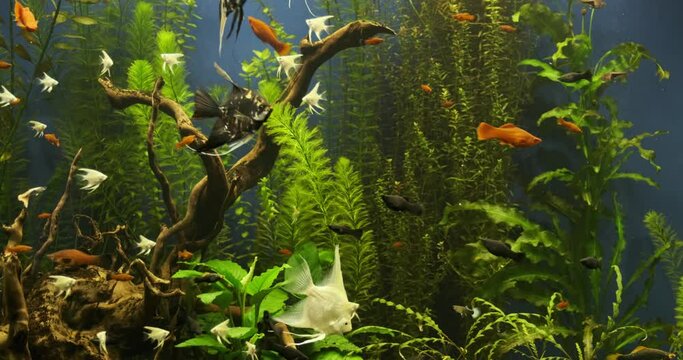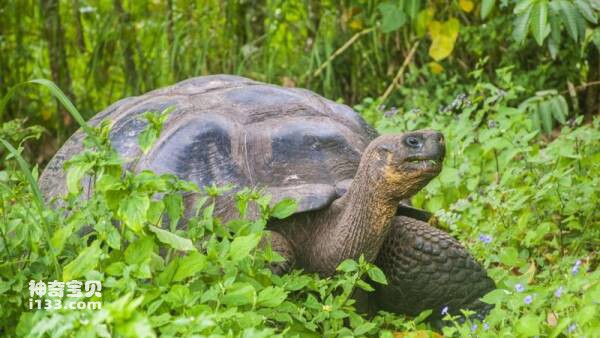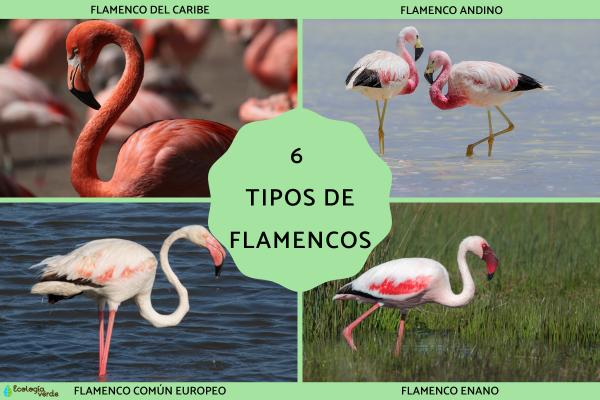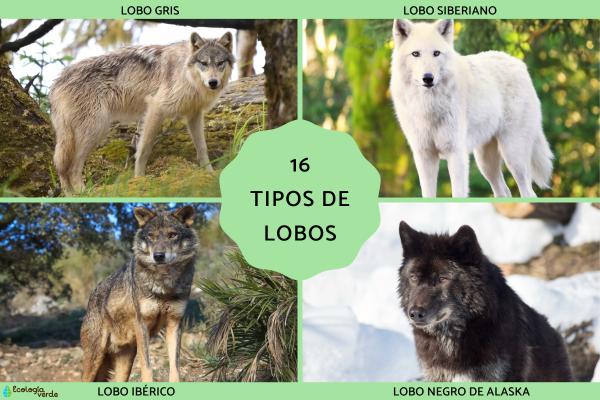Introduction
In nature, sleep is essential for animals. It not only helps them recover their physical strength, but also enhances immunity and consolidates However, different animals have different sleeping habits. Some animals can sleep only a few hours a day, while others spend most of their time sleeping. Today, we will reveal the world's The animals that sleep the most, as well as their sleeping habits and reasons.
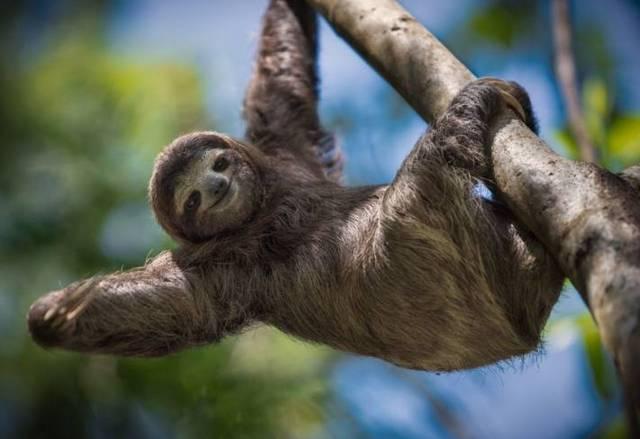
1. Sloth
Average daily sleep Time: 15-20 hours
...
Sleeping characteristics: Sloths are known for their slow movements. They spend most of their time in trees, moving slowly and looking for food. In order to save energy, They sleep 15 to 20 hours a day, most of the time hanging in the trees. Sloths have an extremely slow metabolism, and it takes days or even weeks to digest their food, which may be why they need to eat for so long. One reason to take a break.
2. Koala
Average daily sleep time: 18-22 hours
Habitat: Australia
Sleeping characteristics: Koalas are recognized as one of the best sleepers, sleeping 18 to 22 hours a day. The koala's diet is mainly eucalyptus leaves rich in fiber, which are difficult to digest and have little nutrition. In order to conserve energy and digest these leaves, koalas must sleep a lot. They spend most of their time sleeping on branches, and their bodies are adapted to arboreal life. Lifestyle.
Average daily sleep time: 19-20 hours
Habitat: Global Inside
Sleep characteristics: Brown bats are nocturnal animals, sleeping most of the day and becoming active at night to catch insects. Brown bats sleep an average of 19 to 20 hours a day because they need to conserve energy. They usually hang upside down in caves, tree holes, or dark places in buildings.
4. Opossum
Average daily sleep time: 18-20 hours
Habitat: North and South America
Sleep characteristics: Opossums are nocturnal animals, sleeping in secluded places during the day and coming out to forage at night. They also sleep a lot, usually 18 to 20 hours a day. The low metabolism and predator-avoidance habits of opossums require them to rest for a long time.
5. Hedgehog
Average daily sleep time: 18 hours
Habitat: Europe, Asia and Africa
Sleeping characteristics: Hedgehogs are active at night and sleep in safe places during the day, sleeping an average of about 18 hours a day. During the cold winter months, some species of hedgehogs will hibernate, sleeping longer in this state, helping them save energy during the season when food is scarce.
6. Cat
Average daily sleep time: 12-16 hours
Habitat: Global
Sleep characteristics: Domestic cats are well-known "napping experts", sleeping an average of 12 to 16 hours a day, sometimes even more. Cats are natural hunters, and like to rest and recharge during the day, while they are full of energy at night. Cats in the wild, such as lions and cheetahs, have similar sleeping habits, spending a lot of time napping in the shade or among rocks between hunting and activities.
7. Lion
Average daily sleep time: 16-20 hours
Habitat: Africa and Asia
Sleeping characteristics: As a top predator, lions do not need to worry too much about the threat of predators, so they can spend a lot of time sleeping. Lion groups usually sleep in the shade during the day and become active at night to hunt. Lions usually sleep an average of 16 to 20 hours a day, especially male lions, who are more likely to fall into a long rest.
8. Giant Panda
Average daily sleep time: 10-16 hours
Habitat: China
Sleeping characteristics: Giant pandas feed on bamboo, but bamboo has low nutritional density, so they must eat a lot to maintain their body's energy needs. In order to digest a lot of fiber food, pandas spend a lot of time eating and resting, and the average daily sleep time can reach 10 to 16 hours.
9. Numbat
Daily sleep time: 14-18 hours
Habitat: Australia
Sleep characteristics: Numbats’ diet is mainly termites, so they don’t need to be active a lot. Since termites are abundant, Numbats spend most of their time sleeping, sleeping 14 to 18 hours a day.
10. Elephant
Average daily sleep time: 2-4 hours
Counterexample: One of the animals that sleep the least
Habitat: Africa and Asia
Sleep characteristics: Despite their large size, Elephants-Are-Endangered.html">elephants sleep relatively little, usually only 2 to 4 hours a day. Elephants need to spend a lot of time looking for food while staying alert to potential dangers, so they sleep less.
Physiological reasons for animal sleep
The amount of sleep an animal needs is closely related to its metabolic rate, predation risk, and food acquisition method. The following are the main factors that affect animal sleep:
Metabolism: Animals like koalas and sloths have a slow metabolism, so they need to sleep longer to save energy. In contrast, large animals like Elephants-Are-Endangered.html">elephants have a slow metabolism but need to spend a lot of time foraging, resulting in shorter sleep.
Predation pressure: Top predators (such as lions) do not have many natural enemies and can sleep for a long time without worry. Prey animals (such as small mammals) need to stay alert, so they sleep relatively short periods of time.
Food variety and availability:Animals that rely on low-nutrient diets, such as koalas and pandas, must eat and rest for long periods of time, while animals that consume high-protein diets, such as cats, can recover energy faster but still need a lot of rest.
Conclusion
Sleep is essential for animal survival, but different animals have very different sleeping habits and durations. From koalas and sloths that sleep 20 hours a day to elephants that sleep only a few hours, animals' sleep patterns reveal how they adapt to their environment, manage energy, and cope with predation pressure. Whether it's a long nap in a tree or a deep sleep in a cave, these creatures rest in a way that is not only amazing, but also helps them survive better in nature.
Why do top predators like lions and sloths sleep so much?
Top predators such as lions and sloths can sleep for a long time mainly due to their lifestyles, evolutionary adaptations and physiological needs. Although lions and sloths have different living habits and ecological status, the reasons for their long sleep time can be attributed to the following points:
1. Advantages of top predators (lions)
Top predators such as lions are at the top of the food chain in the ecosystem. They do not have many natural enemies and can dominate the environment. This allows them to spend more time resting without having to be vigilant all the time.
Low predation pressure: Lions are the top predators in the grasslands and have almost no natural enemies except humans. Therefore, they do not need to be vigilant all the time like animals at the bottom of the food chain, and can sleep and rest for a long time without worrying.
High energy consumption of hunting: Although lions spend a lot of time sleeping every day (usually 16-20 hours), their hunting process requires a lot of physical strength and energy. Lions usually work in teams to hunt large prey, such as zebras or wildebeests. This high-intensity activity requires a long recovery period after hunting.
Storing energy: Since lions hunt infrequently (hunting once every few days or a week), they need to rest for a long time to reserve physical strength for the next hunt. The success rate of hunting is also low, so lions need to retain enough energy to survive during hunger.
2. Slow metabolism and low energy requirements (sloths)
Although sloths are not predators, they also sleep for a very long time, which is mainly related to their metabolic rate and physiological adaptability.
Slow metabolism: Sloths have a very slow metabolism, which is one of their survival strategies. They mainly eat low-energy foods, mainly leaves, which are slowly digested and have limited nutrients. To adapt to this low-energy diet, sloths reduce their activity frequency and increase their rest time.
Energy conservation: In order to maximize energy conservation, sloths live at an extremely slow pace. They remain stationary for a long time, which not only reduces energy consumption, but also helps them avoid natural enemies. Sleeping is one of the best ways to save energy, so sloths spend most of the day sleeping (15-20 hours).
Low predation risk: Although sloths are at the bottom of the food chain, they are less likely to be attacked by predators because they live high in the tree canopy and move slowly and unnoticed. This relatively safe environment allows them to rest for a long time without having to be alert all the time.
3. Evolutionary Adaptability
Save energy to cope with environmental challenges: Whether it is a top predator or a slow animal, their long sleep can be regarded as an evolutionary adaptive strategy. Lions need to accumulate strength to cope with difficult hunting, while sloths save energy through minimal activity and long sleep to adapt to a nutrient-poor diet.
Body recovery and repair: Long sleep is essential for the recovery and repair of the body, especially for large animals like lions that hunt through fierce physical confrontation. By resting for a long time, their muscles can be repaired and prepared for the next hunt.
4. Environmental and climatic influence
Habitat: Lions and sloths live in specific climate environments. Lions usually live in the hot African grasslands. The high temperature during the day makes them choose to rest in the shade, and hunt at night and early morning when the temperature is lower. Sloths live in the tropical rainforests of Central and South America. The hot and humid climate makes them hang on branches most of the time to rest.
Lions, as top predators, can sleep for long periods of time because they have no natural enemies and need a lot of energy to cope with infrequent but high-intensity hunting. Long rest allows them to recover their strength and be highly efficient when hunting.
Sloths sleep for long periods of time because of their slow metabolism and low energy requirements. They save energy by reducing activity and resting for long periods of time, thus adapting to a low-nutrition diet.
Although lions and sloths have different positions in the ecosystem, they have adapted to their respective living environments through long sleeps, demonstrating diverse survival strategies in evolution.
Which animals sleep the least?
In nature, although some animals sleep for a long time every day, there are also some Animals sleep very little. The following are some animals that sleep the least and their characteristics:
1. Elephant
Average daily sleep time: 2-4 hours
Habitat strong>: Africa and Asia
Sleep characteristics: Elephants are one of the largest land animals, despite their large size, their They sleep relatively little. Wild elephants usually sleep only 2 to 4 hours a day, and they sleep standing up most of the time. They need to spend a lot of time looking for food and water, and also need to be alert. Threat from predators, especially if habitat is unsafe.
2. Giraffe
Average daily sleep time: 30 minutes-2 hours
Habitat: Africa
Sleep characteristics: Giraffes sleep very briefly, usually only 30 minutes to 2 hours a day, and they sleep in two parts: In order to avoid attacks from predators, giraffes usually remain standing, especially in the wild. Even when lying down to rest, giraffes will remain highly alert and ready to escape at any time.
Average daily sleep time: 2-3 hours
Habitat: Global
Sleep characteristics: Horses are also animals with relatively short sleep time, sleeping 2 to 3 hours a day. In most cases, horses nap while standing, using special joint structures to support their bodies and avoid falling. In addition, horses are usually in a light sleep state, and they will only lie down and enter a deep sleep when the environment is extremely safe.
4. Dolphin
Daily sleep time: Discontinuous rest pattern
Habitat: Global oceans
Sleep characteristics: dolphins.html">Dolphins have a very unique sleep pattern, with their cerebral hemispheres alternating between sleep, which means their brains always remain partially awake, controlling their breathing and staying alert to avoid drowning and predator attacks. dolphins.html">Dolphins do not sleep continuously, but in short "rest" periods, sleeping for a few minutes at a time, with a total sleep time of about several hours.
5. Cow
Average daily sleep time: 4 hours
Habitat: Global
Sleep characteristics: Cows are one of the common livestock. Although they have a long rest time, they don’t actually sleep much, usually only 4 hours a day. Cows are in a semi-awake state most of the time, only briefly entering a deep sleep state, and have napping periods during the day and at night.
6. Sheep
Average daily sleep time: 3-4 hours
Habitat: Global
Sleep characteristics: Sheep sleep relatively short, usually only 3 to 4 hours per night. To guard against predators, sheep usually take turns to rest, ensuring that there are always some members in the group who remain alert.
Daily sleep time: Alternating short periods of sleep
Habitat: Arctic and sub-Arctic waters
Sleep characteristics: Like dolphins, beluga whales also use alternating sleep. Their brain hemispheres alternate to rest, ensuring that they can sleep at any timeStay awake and control your breathing. Although they don't enter deep sleep for long periods of time, the total sleep time adds up to several hours.
8. Donkey
Average daily sleep time: 3-5 hours
Habitat: Global
Sleep characteristics: Donkeys sleep similarly to horses, averaging 3 to 5 hours a day, and most of the time they nap while standing. Donkeys will only lie down and enter deep sleep when they feel safe.
9. Sea Lion
Average daily sleep time: 6 hours
Habitat: Coastal areas around the world
Sleep characteristics: Sea lions are animals that can sleep in water and on land. When they sleep in the water, they usually only let part of their brain rest to stay alert to the environment. Sea lions have a similar sleeping pattern to dolphins, with an average daily sleep time of about 6 hours.
10. Hare
Daily sleep time: 4-5 hours
Habitat: Global
Sleep characteristics: Hares are highly alert animals that always stay alert to their surroundings. Usually, hares only sleep 4 to 5 hours a day and rarely enter deep sleep to be ready for potential predators at any time.
The short sleep time of these animals is often related to their evolutionary strategies and living environment. Top predators such as elephants and giraffes need to spend a lot of time looking for food and staying alert, so they sleep very little. Marine animals such as dolphins and sea lions use a special alternating sleep method to maintain the functions required for survival. Among these animals, although they sleep less, they can still survive and stay healthy in a complex environment through unique physiological mechanisms and behavioral patterns.
animal tags: Sleep
We created this article in conjunction with AI technology, then made sure it was fact-checked and edited by a Animals Top editor.


